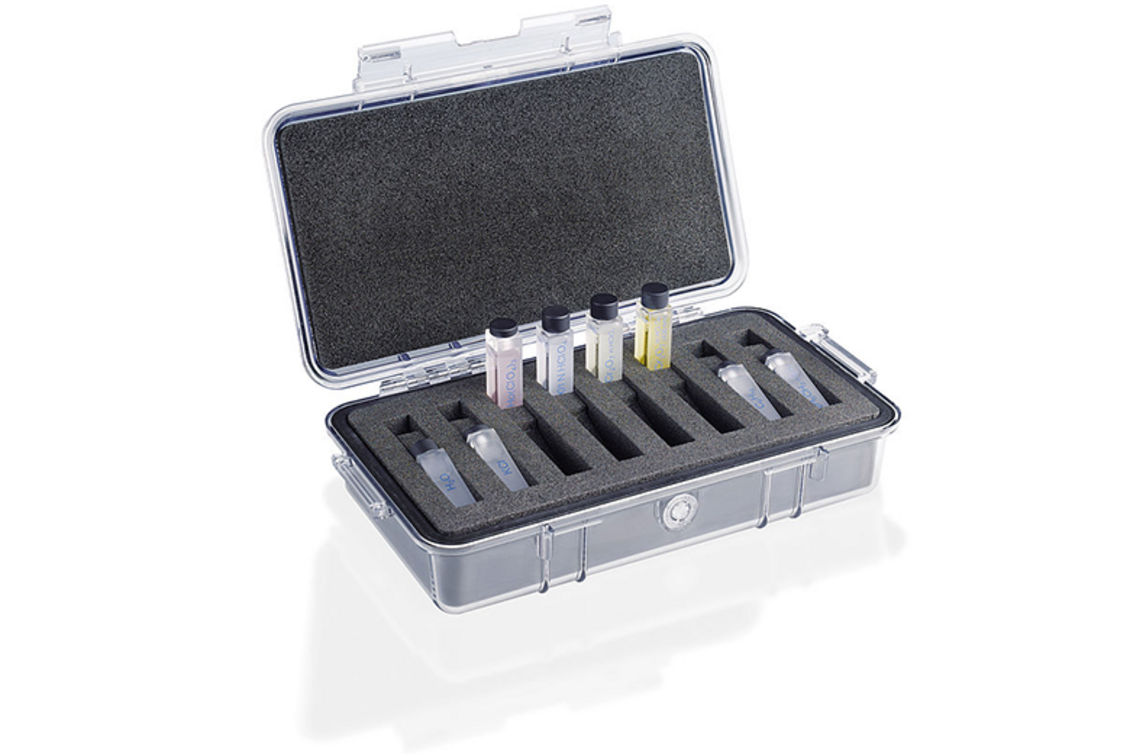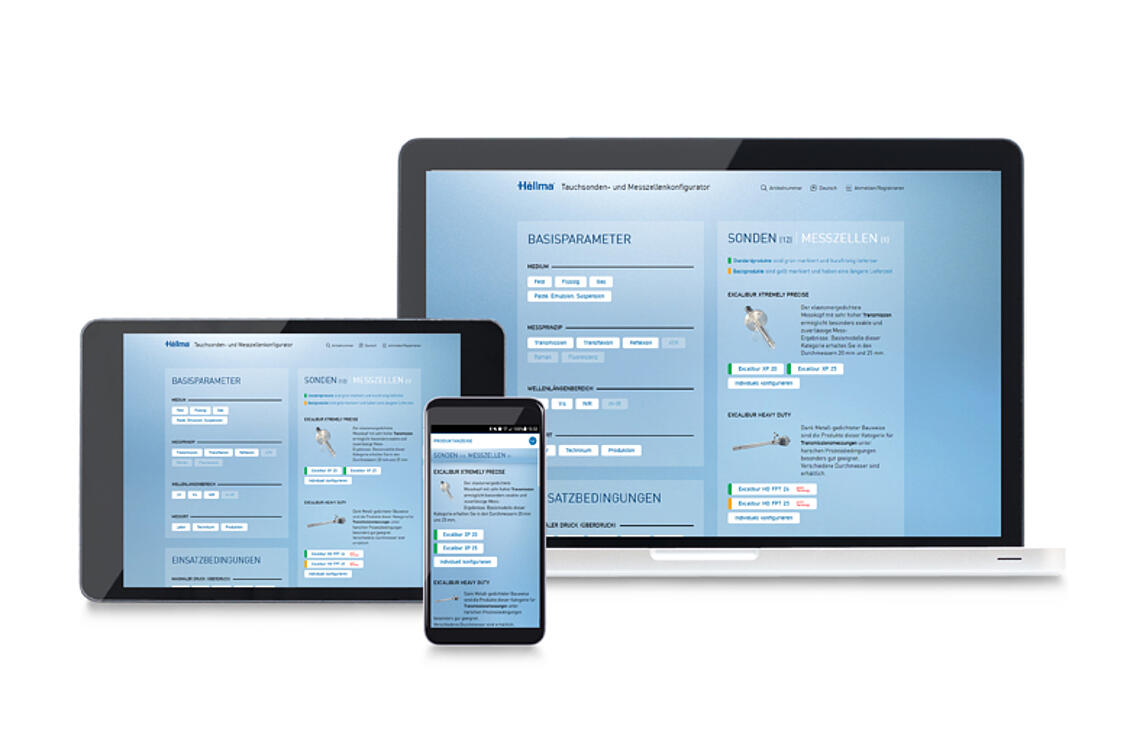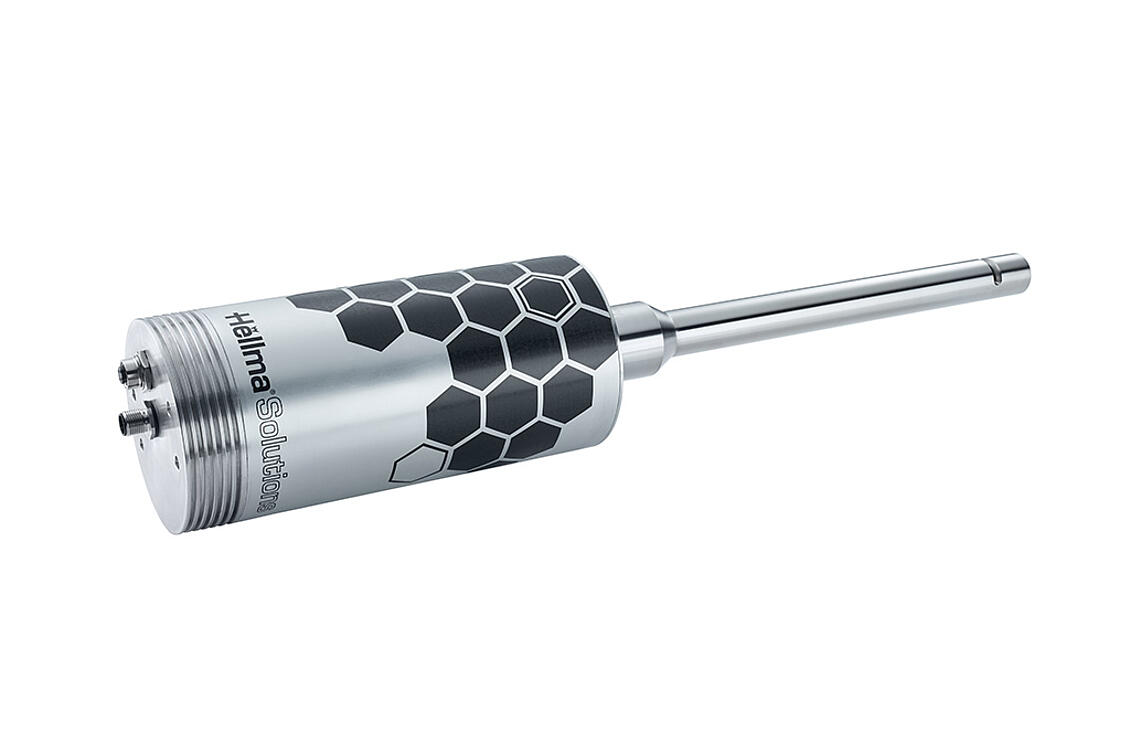1. General
1.1 These Terms of Purchase apply to all business relations between Hellma GmbH & Co. KG as the client (henceforth referred to as the “Client”) and its contractor (henceforth referred to as the “Contractor”). The Terms of Purchase only apply if the Contractor is an enterpriser (“Unternehmer”) within the meaning of Section 14 of the German Civil Code (Bürgerliches Gesetzbuch – BGB), a legal entity under public law or a special fund under public law.
1.2 The Terms of Purchase apply in particular to contracts on the sale and/or delivery of moveable items (“goods”), regardless of whether the Contractor manufactures the goods itself or procures them from suppliers (Sections 433 and 651 BGB). Unless otherwise agreed, the Terms of Purchase apply in the version valid at the time of the Client’s order or respectively in any case in the version most recently disclosed in writing by the Client, and are also deemed the framework agreement for similar future contracts, without the Client needing to restate this in each individual case.
1.3 These Terms of Purchase apply exclusively. Any deviating, opposing or supplementary general terms of business of the Contractor shall only become a contractual component insofar as the Client has expressly consented to their validity in writing. This requirement for consent applies in any case, especially also if the Client unconditionally accepts deliveries or services of the Contractor while aware of its general terms of business.
1.4 References to the validity of statutory provisions shall only have clarifying significance. Thus, the statutory provisions shall also apply even without such clarification insofar as they are not directly altered or expressly excluded in these Terms of Purchase.
2. Contractual conclusion and contractual amendments
2.1 Offers must be submitted in duplicate, free of charge and without obligation for the Client. The Contractor must adhere to the enquiry or the call for tender with respect to the quantity, quality and performance in the offer and expressly indicate any deviations. The Contractor is bound to its offer for three months.
2.2 Cost estimates are binding and issued free of charge, unless a deviating arrangement has been expressly agreed.
2.3 Orders of the Client are deemed binding no earlier than upon written submission or confirmation. The Contractor shall report to the Client any apparent errors (e.g. typing errors and calculation errors) and incomplete specifications in the order including the order documents for the purpose of correction or completion prior to acceptance; otherwise the contract shall not be deemed concluded.
2.4 In the event that the Contractor does not accept the order within two weeks of receipt, the Client is entitled to revoke the order.
A delayed acceptance of the order by the Contractor shall be deemed a new offer, which subsequently requires acceptance on the part of the Client.
2.5 In the event of order acceptance, the Contractor shall send the Client an order confirmation by email to the following address: Einkauf.Analytics@hellma.com.
2.6 Agreements made with the Contractor in individual cases (including ancillary agreements, supplements and amendments) shall in any case prevail over these Terms of Purchase. A written contract or confirmation by the Client shall be decisive for the content of such agreements, subject to evidence to the contrary.
2.7 Legally relevant declarations and notices, which are to be submitted by the Contractor to the Client after contractual conclusion (e.g. setting of deadlines, reminders, declaration of cancellation), must be made in writing to be valid.
2.8 For call-off orders, only our delivery call-offs shall be bindingly issued orders.
2.9 The packaging provisions of the Client in their respectively valid version shall be a component of this contract. The Contractor is obliged to inform itself regularly with respect to the current status of the Client’s packaging provisions. Upon request, the Contractor shall be provided the conditions prior to performance. In this respect, no information obligation shall apply to the Client either in principle or in the event of amendments to the conditions.
3. Performance
3.1 The Contractor undertakes to observe the pertinent statutory and official regulations and requirements in the fulfilment of the contract. The delivery or service must comply with the accident prevention and occupational safety regulations as well as the generally recognised rules of safety and occupational health, relevant standards, as well as DIN, VDE and other requirements. Electrical machines, equipment etc. must bear the required VDE radio inference protection symbols (CE mark) and comply with the pertinent machine directives. The Contractor must supply any necessary protective devices pursuant to such regulations as part of the agreed price. Should the Contractor have any concerns regarding the type of performance desired by the Client, it must promptly communicate these concerns to the Client in writing.
3.2 All materials used by the Contractor must meet the statutory requirements for restricted, toxic and dangerous substances. In particular, the Contractor must observe the REACH Directive (EC) No. 1907/2006, the RoHS Directive 2011/65/EU dated 8 June 2011 in consideration of the delegated directive (EU) 2015/863 of the Commission dated 31 March 2015 on the amendment of Annex II of the Directive 2011/65/EU and the provisions on conflict minerals defined in Section 1502 of the Wall Street Reform and Consumer Protection Act. The Contractor must also ensure for its suppliers by means of corresponding contracts that they meet the corresponding requirements.
3.3 The Contractor must provide all documents required for acceptance, operation, maintenance and repairs (test protocols, certificates, drawings, plans, operating instructions etc.) in German, in a reproducible form where necessary, free of charge.
3.4 Deviations from the orders are only permitted following the advance written consent of the Client.
4. Delivery deadlines, delivery delays and force majeure
4.1 Agreed deadlines and periods are binding. The delivery period commences on the date on which the Contractor receives the order. The Contractor shall enter into default upon expiry of the delivery period, without this requiring a reminder by the Client. In the event that delays are expected, such as due to force majeure, labour disputes or other unforeseeable events, the Contractor must promptly report this to the Client in writing stating the reasons and the expected duration. The Contractor is obliged to compensate the Client for all direct and indirect delay damages, insofar as the delay is due to the culpable conduct of the Contractor. The acceptance of the delayed delivery or service shall not constitute a waiver of compensation claims. The Client’s receipt of the good shall be decisive for compliance with the delivery period or delivery deadline. If the delivery is not agreed “ex works” (CIP or DDP according to ICC Incoterms® 2010), the Contractor must make the good available for loading and dispatch punctually in consideration of the time to be agreed with the forwarder.
4.2 In the event that the Contractor has assumed setup and assembly and unless otherwise agreed, the Contractor shall bear all necessary ancillary costs such as travel costs, provision of tools and allowances, subject to any deviating provisions.
4.3 In the event that the Contractor delays on delivery, the Client may demand a contractual penalty for each full calendar week of the delay in the amount of 1% of the net price, yet no more than 5% of the net price of the delayed delivery good in total. The Client is permitted to demand the contractual penalty in addition to the fulfilment and a compensation owed by the Contractor according to statutory provisions as a minimum amount; the assertion of further damages remains unaffected. The Client shall declare the reservation of the contractual penalty no later than upon payment of the invoice, which follows the delayed delivery.
4.4 Should the Contractor foresee difficulties in terms of the production, procurement of raw materials, compliance with the delivery deadline or similar circumstances, which could impede its punctual delivery or hinder delivery in the agreed quality, the Contractor must promptly notify the ordering department of the Client.
4.5 The unconditional acceptance of the delayed delivery or service shall not constitute a waiver of the compensation claims to which the Client is entitled due to the delayed delivery or service; this shall apply until complete payment of the remuneration owed by the Client for the affected delivery or service.
4.6 As a rule, partial deliveries are not permitted, unless the Client has expressly agreed to partial deliveries in writing or they are reasonable for the Client.
4.7 For unit quantities, weights and dimensions, the values determined by the Client upon incoming goods inspection shall be decisive, subject to evidence to the contrary.
4.8 Regarding software that forms part of the product delivery scope, including its documentation, the Client shall have the right of use with the agreed performance characteristics and to the extent necessary for a contractual use of the product in addition to the right of use to the extent permitted by law (Sections 69a et seq. of the German Copyright Act (Urhebergesetz – UrhG)). The Client may also create a backup copy without express agreement.
5. Dispatch notification and invoice
The specifications in the orders and delivery call-offs of the Client shall apply. The invoice must be issued in duplicate to the respective address indicating the order number and other allocation information; it may not be attached to the dispatches.
6. Pricing and transfer of risk
6.1 The price stated in the order is binding. Where no special agreement exists, the prices are indicated ex works and duty paid (DDP according to ICC Incoterms® 2010). Prices do not include value added tax.
6.2 Unless otherwise agreed in individual cases, the price includes all services and ancillary services of the Contractor (e.g. assembly, installation) as well as all ancillary costs (e.g. proper packaging, transport costs, including any transport and liability insurance).
6.3 The Contractor shall bear the risk of accidental loss and accidental deterioration of the good until handover of the good to the Client or its vicarious agents at the location to which the good is to be delivered according to the order. If an acceptance procedure is agreed, this shall be decisive for the transfer of risk.
7. Payment conditions
Where no special agreement exists, the invoice shall be settled either within 14 days with an early payment discount of 2% or within 30 days without deduction from the maturity of the payment claim. This is subject to the requirement of both the receipt of a proper invoice as well as the complete delivery of the good or acceptance of the service. Payment is subject to invoice verification.
8. Claims for defects and recourse
8.1. The Contractor shall be liable in accordance with the statutory provisions for legal and material damages (including incorrect and insufficient delivery as well as improper assembly, deficient delivery, operation or operating instructions), unless otherwise agreed as follows. The Contractor shall ensure the careful and proper fulfilment of the contract, in particular compliance with the defined specifications and other performance requirements of the Client according to the latest state of science and technology, as well as the quality and suitability for purpose of the delivery regarding material, construction and implementation and the documents belonging to the delivery (drawings, plans etc.).
8.2 The statutory provisions (Sections 377 and 381 of the German Commercial Code (Handelsgesetzbuch – HGB)) shall apply to the commercial obligation to inspect and give notice of defects, subject to the following condition: the inspection obligation of the Client is limited to defects, which are evidently manifest upon incoming good inspection during external examination including the delivery papers, as well as upon our random-sample quality control (e.g. transport damages, incorrect and insufficient delivery). Insofar as an acceptance procedure is agreed, no inspection obligation shall apply. In other respects, this shall depend on the extent to which an inspection is feasible in consideration of the circumstances of the individual case according to the ordinary course of business. The obligation of the Client to give notice of defects discovered at a later point in time remains unaffected.
In all other cases, the complaint of the Client (notice of defects) shall be considered prompt and punctual if it is received by the seller within five working days. In this respect, the Contractor waives the objection of delayed complaint.
8.3 As a rule, the Client is entitled to the right to choose the form of subsequent fulfilment. The Contractor is entitled to refuse the form of subsequent fulfilment chosen by the Client according to the requirements of Section 439 (3) BGB).
8.4 In the event that the Contractor does not promptly begin to rectify the defect upon the Client’s request to rectify the defect, the Client is permitted in urgent cases following announcement to the Contractor – in particular to avert acute dangers or prevent larger damages – to carry out the rectification itself or arrange rectification by a third party at the cost of the Contractor.
8.5 In deviation from Section 438 (1) No. 3 BGB, material defect claims shall lapse in three years unless the good has been used for a building according to its normal use and has caused the defectiveness thereof. The limitation period for material defect claims begins with the delivery of the contractual object (transfer of risk). If an acceptance procedure is agreed, the limitation period shall begin upon acceptance.
8.6 In the case of legal defects, the Contractor shall also release the Client from any third-party claims. Regarding legal defects, a limitation period of three years shall likewise apply, whereby the statutory limitation period for urgent surrender claims of third parties (Section 438 (1) No. 1 BGB) remains unaffected; moreover, claims arising from legal defects shall under no circumstances lapse for as long as the third party has the right to assert claims against the client – in particular in the absence of limitation.
8.7 For replacement objects and subsequent fulfilment work provided in connection with the fulfilment of the guarantee obligation, the Contractor shall guarantee in the same way as for the delivery item. For delivery parts, which could not remain in operation due to guarantee claims, an extended guarantee period shall be extended by the period of the interruption to operation.
8.8. Should the Client incur costs as a result of the deficient delivery of the contractual object, in particular, transport, carriage, labour or material costs or costs for incoming inspection beyond the normal scope, the Contractor shall assume these costs.
8.9 Should the Client take back products it has manufactured and/or sold from its buyer or from the market as a result of the defectiveness of the contractual object delivered by the Contractor, or if the purchase price is reduced for this reason or if the Client otherwise faces claims for this reason, the Client shall reserve the right to recourse vis-à-vis the Contractor, whereby this shall not require the otherwise necessary setting of a period in this respect.
8.10 The Client is permitted to demand compensation of expenses from the Contractor, which the Client bears in relation to its customers, because these customers have a claim to the compensation of expenses necessary for the purpose of subsequent fulfilment against the Client, in particular transport, carriage labour and material costs.
8.11 The Contractor shall be liable for ensuring that third-party protective rights are not violated in the performance of the contract or in the delivery and use of the delivery object or service. The Contractor shall release the Client from third-party claims arising from any violations of protective rights.
9. Liability and recourse
9.1 Without prejudice to the regulation in Section 8, the Contractor shall be liable without restriction for culpability in the event of other breaches of duty. The above liability regulation also applies insofar as the breach of duty was committed by employees or other vicarious agents of the Contractor and their culpability must be attributed to the Contractor.
9.2 Moreover, the Contractor shall be liable according to absolute liability regulations, in particular the German Product Liability Act (Produkthaftungsgesetz).
9.3 If the Contractor is responsible for a product damage, the Contractor must release the Client from third-party claims to the extent that the cause lies in the Contractor’s area of control and organisation and it itself is liable in the external relationship.
As part of its release obligation, the Contractor must reimburse the Client for all expenses in accordance with Section 683 and 670 BGB, which arise from or in connection with a third-party claim, including the legal costs or the costs of recall actions performed by the Client. The Client shall inform the Contractor about the content and scope of recall actions – where possible and reasonable – and provide it the opportunity to make a statement. Further statutory claims remain unaffected.
9.4 The Contractor shall maintain a corresponding product liability insurance and recall cost insurance in the scope suitable for the order volume and present evidence thereof to the Client upon request.
9.5 A limitation of the Contractor’s liability for insurable risks to certain liability amounts is not agreed.
10. Safety rules and general regulations
The Contractor and all persons it engages, who perform work on the site premises in fulfilment of the contract, must observe the respective work provisions as well as all safety rules and general regulations of the Client.
11. Ownership rights
11.1 The Client shall acquire the unrestricted ownership of the delivery item or service following its handover or – insofar as an acceptance procedure is agreed – upon acceptance; the same applies to documents supplied by the Contractor. Upon handover, the Contractor declares that it is fully authorised to dispose of the delivery item or service and that no third-party rights exist.
11.2 Material provisions of any kind remain the property of the Client. They must be indicated as such and stored, designated and managed separately. They may only be used according to their intended purpose. In the event that material provisions are processed, transformed, combined or mixed with other objects, the Client shall acquire sole ownership of the new object. The Contractor shall keep the new object safe for the Client at no charge. The ownership of and copyright to the documents of the Client, which it has provided to the Contractor, remain with the Client. The documents must be promptly returned with all copies and reproductions upon request. The Client’s documents may only be used for the purpose defined according to the contract. In the event of infringements, the Contractor shall be liable for the entire damage.
12. Documents and secrecy
12.1 All business and technical information released by the Client (including characteristics, even when they arise indirectly from the objects, documents or software provided, and other insights or experience) must be kept secret from third parties, provided that and for as long as the information is not demonstrably publicly known, and this information may only be provided to such persons in the Contractor’s company, who require it in order to perform the service to the Client and who are likewise obligated to secrecy; the information remains the exclusive property of the Client. Without advance written consent, this information may not be duplicated or commercially exploited except for deliveries to the Client. At the request of the Client, all information from the Client (including any copies or records created, as applicable) and objects made temporarily available must be promptly returned to the Client in their entirety or destroyed. The Client reserves all rights to such information (including copyrights and the right to register commercial protective rights, such as patents, trademarks, semiconductor protection etc.). Insofar as the Client is obliged to observe rights, this also applies in favour of such third parties.
12.2 The Contractor may neither utilise products, which are produced according to documents designed by the Client, such as drawings, models and the like, or according to confidential specifications or tools or replicated tools of the Client, nor offer or supply such products to third parties. This also applies analogously to the Client’s print orders.
12.3 The Contractor may only reference the commercial relations with the Client in promotional material with the express consent of the Client.
13. Environment
Without prejudice to the provision in Section 3.2, the Contractor shall generally adhere to the use of environmentally compatible products and production methods. The Contractor is expected to support the efforts of the Client, its customers and the legislator to minimise and prevent burdens for people and the environment. The Contractor is expected to implement environmental principles accordingly.
14. General provisions
14.1 Should a provision of these terms and the further agreements concluded be or become invalid, this shall not affect the validity of the remaining terms. In the event of the invalidity of a term, the contracting partners are obliged to enter into contractual negotiations with the aim of replacing the invalid provision with a valid provision, which comes as close as possible to the originally intended purpose of the invalid provision.
14.2 If the seller is a merchant within the meaning of the German Commercial Code, the jurisdiction for all legal disputes arising directly or indirectly from contractual relations and those based on these Terms of Purchase, shall be the registered address of the Client. Furthermore, the Client is permitted at its discretion to take legal action against the Contractor at the court competent at the registered address of the Contractor or the branch of the Contractor or at the place of fulfilment.
14.3 German law applies exclusively to the contractual relations with the exclusion of provisions on the conflict of laws and the United Nations Convention on the International Sale of Goods (CISG).







